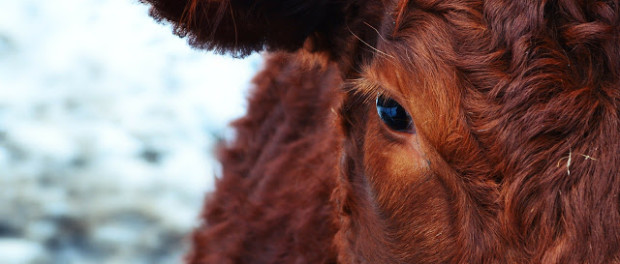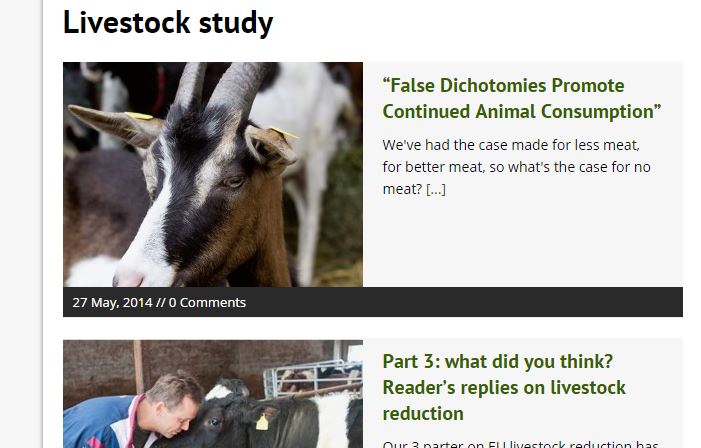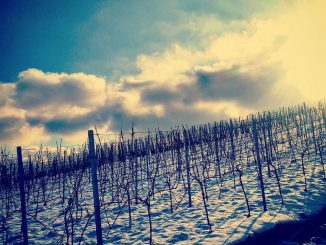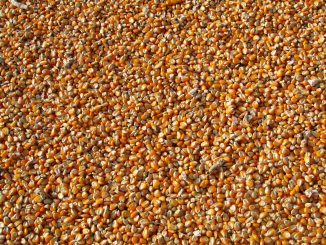Extra links added to “more reading and watching” section at the end of this article on 12/01/2016 16.31hrs and 04/02/2016 12.39hrs (both GMT)
Is the way we farm animals and turn them into food part of the problem or the solution to the myriad of social and environmental issues we face today? This is the core question we will address here in a new livestock debate series here on ARC2020.

More specifically..
Sustainable food
- How could meat and other livestock products be farmed, distributed and consumed better? What’s wrong with how it is being done now?
- Is there a carbon fetishism at play in the climate change debate, to the detriment of genuinely sustainable diets and more broadly sustainable agri-food systems?
Climate Change
- Post COP21 and the Paris Agreement, there is renewed focus on farming and food. Are the assumptions about livestock’s quite significant contribution to greenhouse gas (GHG) emissions accurate?
- Do these commonly accepted figures on livestock’s contribution to GHG emissions accurately take into account carbon storage in soil via ruminant (sheep and cattle) activity? Equally, is the science behind the regenerative agriculture movement robust? And how is the overall food system – from the fertility/field end to the landfill/compost end – integrated into the figures?
Morals and missing links
- What are the morals of the story? Where do justice and ethics fit in? For example, ethics regarding the treatment of animals and justice regarding marginalised food producers, people who might benefit more from a focus on food sovereignty, or what could be called a people’s agroecology? What’s missing from this debate?
As part of ARC2020’s 2016 focus, we’ll be hosting some debates on key issues for the agri-food and rural actor communities. Livestock is number one.
The impetus for this debate has been the emergence of the what could be called the livestock soil regeneration movement. It has long being argued and assumed by many that livestock in general and meat in particular meat is unsustainable: that they contribute excessively poor diets, much environmental damage and, especially, climate change.
To take just the latter, though figures from different organisations vary, the UN FAO suggest “total emissions from global livestock” represent “14.5 percent of all anthropogenic GHG emissions”.
So while there are plenty of issues worth addressing many argue that dietary change encompassing less meat – or perhaps no meat or even animal products – is essential for the planet’s socio-environmental well-being (see “more information” section below for some of these from 2014-2016).
In recent years however, an alternative view has emerged, one that considers the carbon building role – or, potential – of livestock in soil, while also looking more broadly at agri-food and dietary sustainability. This position does not necessarily promote the current industrial agri-food system and its use of animals as sustainable, but does promote ways in which livestock could be – and in some cases is – more sustainable in various parts of the world. Sustainable perhaps in the broader environmental, economic, social and political sense, but nonetheless regenerative.
Both strands are represented in numerous ARC2020 articles in recent times:
Meat reduction/elimination
False Dichotomies Promote Continued Animal Consumption (2014)
How to cut EU agri-food Greenhouse Gas Emissions by 40% (2014)
The Business of Pigs: Der Spiegel interview with Jochen Fritz (2013)
Regenerative Agriculture
COP21 & Farming – Soil, Land & Climate Change (2015)
A WholeFood System – agroecology, its cousins & consultations (2015)
Agroforestry – saving the world with meat and sport (2015)
In this debate series, we’ll feature a host of experts from both sides of the Atlantic who make their cases for how they see livestock.
These will include
International Panel of Experts on Sustainable Food Systems (IPES)
Institute for Agriculture and Trade Policy (IATP)
And very knowledgeable but and also quite different individuals Frank Armstrong and Sheldon Frith.
We will also take contributions from readers, and will be active on social media about this. We’re especially looking forward to hearing from food producers. Do get involved via comments (including below) and on social media. Or contact us directly.
Finally, on a personal level I have to say I’m really looking forward to this debate. I’m a former vegetarian of 16 years, but I’ve also worked with livestock hill farmers who have exclusively outdoor and grass fed animals with zero winter feed iuputs *. My own PhD background is in agri-food and rural sociology, so I’ve been thinking about this for a long time. However I’m genuinely undecided on this issue!
Currently, I’m in the ‘less but better meat’ camp, but am I being delusional? Is this a waste of valuable nature space compared to a hyper-efficient animal factory farm capturing and using gases? Or, compared to a completely plant-based diet?
Its really interesting being open to suggestion, rather than, as so often happens on the internet, looking for the data that backs up your own case. So enjoy – engage – argue respectfully – and join in!
More
We hosted a very popular livestock, meat and climate change debate in 2014 – one of our top ten most read articles in fact, since we started in 2010, was the first of these articles.
This debate started out with research which linked a reduction in livestock numbers with a reduction in GHG emissions; we then interviewed the authors, followed up with readers’ replies and finally had another perspective from writer Frank Armstrong. Check it out here!
Background reading and watching
NEW: Carbon Sequestration in Agricultural Soils (World Bank report 2012, opens PDF)
NEW: Our Meat Production and Consumption also Warms the Planet (Florent Marcellesi Jan 2016)
NEW: If farm animals only graze pasture and eat by products – livestock problem solved? (FCRN’s Elin Roos Feb 2016)
Trees can help UK farming cut emissions, says study (Jan 2016)
Warning: your festive meal could be more damaging than a long-haul flight (Dec 2015)
The answer lies in the soil (Dec 2015)
Further Attention to the Environmental Implications of Dietary Choices (Jan 2016 – the author of the infamous ‘lettuce vs bacon’ paper!)
Is Eating Lettuce Really Worse For The Environment Than Eating Bacon? (Dec 2015)
Blind Focus on Carbon Reduction Could Be “Green” Movement’s Achilles Heel (Dec 2015)
Erin Toensmeier on Carbon farming (video 2014) and a compilation of more videos from Toensmeier
https://youtu.be/pElQIfW3W1g
*excluding that required by law via the suckler cow welfare scheme in Ireland, whereby cows having just given birth receive some supplementary feed to build themselves back up. In this case the feed had to be certified organic and was only for the period required. No indoor housing with either silage/hay or pellet feeds such as soya, rolled cereals etc occurred.







I noticed they had an Oppenlander youtube clip. Losing the credibility fast on that side of the debate aren’t we. This is the same dude who was the ‘statistic advisor’ for ‘Cowspiracy’ and is someone (in his abolitionist vegan lectures on youtube) who also mocks local food systems and the word sustainable while advocating for highly processed vegan protein energy bars. Bars that have palm oil in them, which is also responsible for a lot of environmental damage. And ‘sustainable palm oil’, really isn’t when you look into it. There is a lot of good evidence on Regenerative Grazing. But let’s look at the health benefits. Paleo/Low Carb ways of eating are great for people with Typ 2 diabetes, pre-diabetes and metabolic syndrome. With 280 Ausies a day getting Typ 2 diabetes, I think that may not be too good for our World. And the funny thing is you get less hungry eating that way, so you can eat less than a vegetarian and a lot less than a vegan. Another misconception is that people who eat this way eat a lot of meat. This is not true either. They eat adequate amount of meat or eggs etc and fat, and heaps of veg. Sounds pritty good to me. It is quite easy to eat this way and source local sustainable food. Please watch this Catalyst episode. http://www.abc.net.au/catalyst/lowcarb/